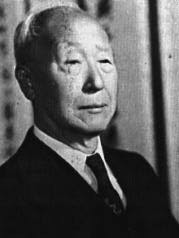
Today, I returned to my hometown in Boseong County of the South Jeolla Province. The green of the tea leaves my family have toiled on for generations is now the ash-gray of artillery and mortar craters. Every building, landmark, and large boulder that have seared deeply into my childhood memories are in ruins. I even visited an old willow tree several meters near the family cottage, rumored to be the largest and oldest willow tree in the entire village. I still remember climbing almost all the way to the top sturdy branch of “Grandfather” as a youth. Now, a Katyusha case is planted on exactly where the tree was, the single rocket having incinerated even the splinters.
It was pretty ironic for me to write the previous entry just a day before the Chinese crossed the Yalu River. Had they not come for their toady Kim Il-Sung, the Republic would have already and proudly won this wretched war 3 years ago. Instead, the Little Red Invasion of Mao completely pushed ROK and UN forces down, back where this war has originally started. On January 4, 1951, the Reds retook Seoul, only to lose the city on March 14 when we turned 180 degrees for a counter-invasion.
Nothing and so much terrible things happened at the same time since that date. The war was now entrenched almost exactly on the 38th Parallel, with neither sides making any gains for 2 years. All the two sides have managed to achieve at the 38th Parallel trenches was the brutal game of wasting the lives of thousands of soldiers in fruitless attacks. My brand-new toothbrush, made of American plastic, fared much better among the termites, except one day, when a recoiless gun blasted my mess kit into smithereens, it splattered back on ground a sizzling, amorphous blob of melted plastic. Having my rations obliterated along with it was not as much a shock: The daily sight of maimed bodies and shrieking, gore-covered amputees can make any man lose his lunch.
April 10, 1951 was when General MacArthur was fired by President Truman, as well as the day I was promoted to the rank of captain. I was then promptly restationed to a less hellish area of the stalemate line, where I finally took a break from war's murderous ironies aside from a few nighttime raids by both sides. Two years after the promotion, I should tell this particular war's murderous irony. I have heard then on intel of how American forces mounted a massive assault on a coveted position they allegedly nicknamed, “Pork Chop Hill”. They successfully held on to the hill against Red onslaughts despite heavy losses, but yesterday, a fellow captain told me that Pork Chop Hill now belongs to the Reds: It was apparently north of the armistice line.
I deeply miss the dear comrades whose lives this war has ruthlessly vaporized. I also show my sincerest solidarity with every ROK and UN soldiers who perished in this hellhole. Most shockingly of all, I bear respect to the Red soldiers, Korean and Chinese, who died on Korea's hills and plains. They may have been our cruel, bloodthirsty enemy from the very start, but in the greater scheme of the world, both of us were mere pawns for fate to meddle around with. Most of all, I will miss the generous American, (now) Major Monnathy, who is now headed for his home city of Boston. Just before he hitched the boat ride, the major gave me one last present: A pork-flavored cake popular in America called “Spam”.








